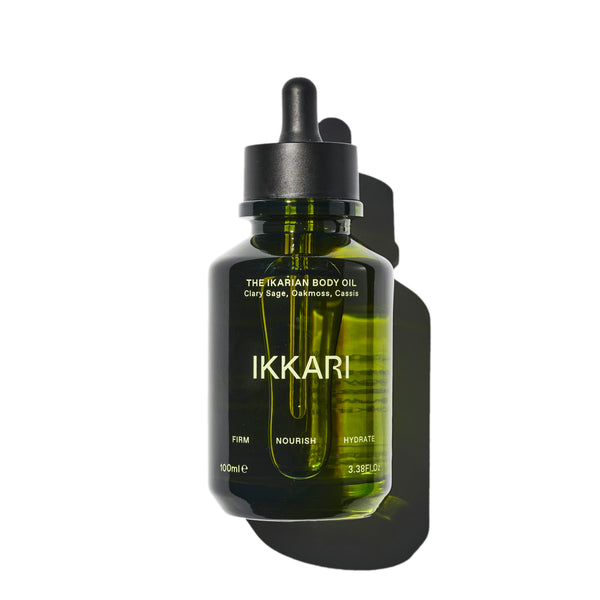Olive oil has long been a commercial commodity – in fact, the only edible commodity to also involve human taste tests – highly lauded all over the world, from the Mediterranean, to Egypt and beyond. A symbol of peace and mythology, its uses surpass the culinary scope to religion and medicine.
Dubbed liquid gold, the olive oil included in our Outer formulations is grown in Australia and supplied by Grampians Olive Co. Here, Owner Operator Greg Mathews shares with us insights into this hero ingredient utilised in our skincare offering for its healing, and nourishing capabilities.
Grown and processed the way nature intended - completely free of pesticides, herbicides, synthetic fertilisers and chemicals, the entire grove is certified organic by NASAA. One of the oldest olive groves in Australia, dating back to 1943, it was renamed “Toscana” in the early 1960s - honouring Italian involvement in the grove’s establishment and similarity in climate and scenery to Tuscany.
Today, Grampians Olive Co. has built a reputation for producing Australia’s leading organic extra virgin olive oil and is highly regarded by top chefs and restaurants - ringing true to our philosophy and ethos: what you put on your body is just as important as what you put in it - our skincare formulations are literally good enough to eat.
With a climate similar to the Mediterranean, the Grampians region in North Western Victoria, boasts hot summers and cool winters - prime olive growing conditions.
“The soil is formed from an ancient seabed, so it is sandy and also rich in minerals, providing the optimal environment for growing high-quality olives that are rich in flavour and nutritional value,” says Mathews.

Mathews’ grove is abundantly rich with 28,000 olive trees including heritage, traditional and rare varieties, low-density planted in the traditional 10 x 10m layout and dryland farmed – meaning it relies solely on rainfall with absolutely no irrigation. “Our philosophy of dryland, organic farming, and prioritising quality over quantity has a direct impact on the flavour and quality, of our olives. By not using irrigation and synthetic chemicals, our trees develop a deep root system that helps them access nutrients and water from the soil.”
Much like IKKARI’s commitment to sustainability, Grampians follow stringent practices. “We are always working to naturally improve the soil rather than deplete it and ensure our farming and processing practices are sustainable,” Mathews shares. “For example, the pomace (crushed stones and skins) obtained from pressing olives is composted and put back into the soil, as well as being used for biomass energy. Our trees are carefully hand pruned, the prunings are mulched and put around the trees to improve the soil.
“Sheep are seasonally grazed among the trees as part of our organic management plan, which helps keep the grass down, as well as providing natural fertiliser for our trees. Being adjacent to the pristine Grampians National Park guarantees the integrity of our organic status, and also means we have abundant native wildlife sharing our grove including kangaroos, emus, echidnas and a variety of birds, which help to keep everything in balance and control pest insects.”
According to Mathews, in addition to variety, the timing of harvest is also critical to quality. “If olives are too ripe, quality suffers and the oil does not have much flavour. If under-ripe, the flavour is too bitter. We follow a low-touch approach to oil production – cold pressed on farm within hours of harvest, unfiltered, unrefined,” he explains.
“Once picked from the tree, the quality of the olive is deteriorating, so it is important that processing happens quickly, on farm. We harvest our olives selected for oil production by shaking them from the tree directly into a catcher (olives never touch the ground), and then immediately take them to our on farm press (within as little as 30 minutes).”
IKKARI formulates using a minimal-interventionist approach, as does Mathews’, following strict regulations for extra virgin olive oil, the highest quality and most pure form.
“Made solely from the fruit of the olive tree without any chemical or heat treatments, it is extracted through a natural cold-pressing process, which retains the full flavour and nutritional content of the olives,” Matthews explains.
“The International Olive Council (IOC) sets the standards for extra virgin olive oil, including that it must have an acidity level below 0.8%, meet specific sensory requirements, and not contain any defects. These standards ensure that consumers are getting a high-quality and healthy product, as extra virgin olive oil is rich in antioxidants and healthy fats.”
Discover the deeply restorative and protective properties of olive oil in IKKARI’s Skin Saviour Balm, The Ikarian Body Oils, The Ikarian Body Washes and Hand & Body Balms.
Image Credit: Pinterest


